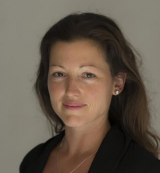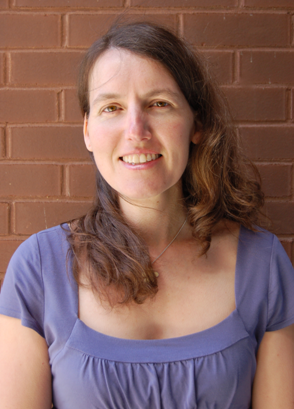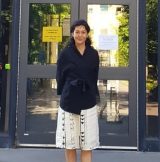Past Event! Note: this event has already taken place.
WEBINAR: Evaluating Impact in Community-Campus Engagement: Towards a Community-First Approach
September 18, 2018 at 2:00 PM to 3:00 PM
| Location: | Online - Register for webinar link! |
| Cost: | Free |
| Audience: | Anyone |
| Key Contact: | Nicole Bedford |
| Contact Email: | cfice@carleton.ca |
Effecting positive community change is an important component of community-campus engagement. But how do we know when and how we are actually making an impact?
What might be the most appropriate methods to measure and capture community impact – short term and long term? Further, how might our community partners be involved in defining the impacts our projects seek to have, the modes of achieving them, their communication to others, and an evaluation of their ultimate utility?
If you’re a researcher or knowledge broker who has struggled with how to capture the impacts of engagement within communities in a way that respects the views of community partners, then this webinar is for you.
On September 18, 2018 from 2:00 PM – 3:00 PM EDT join us for Evaluating Impact in Community-Campus Engagement: Towards a Community-First Approach.
In this webinar, our presenters will provide an overview of some diverse approaches to capturing and communicating impact within academic institutions and with their community partners. Presenters will reflect on the opportunities and challenges associated with various impact measures, including the possibilities of measuring success through both quantitative and qualitative measures. They will also present recommendations, based on CFICE research, that highlight promising ‘community-first’ practices related to sustaining impactful CCE.
Attendees will walk away with a much better understanding of how community-campus engagement partners can work together to measure the change they are creating in their communities.
Level: Intermediate – Attendees should have a basic understanding of community-campus engagement and evaluating community impact(s).
Topics to be Covered:
- What does community impact look like in specific campus-community projects and why does measuring it matter to the Government of Ontario?
- How can post-secondary institutions and define and measure community impact in a way that resonates with the needs of local community priorities and encompasses the global reach of the university or college?
- What are some promising ‘community-first’ practices related to institutionalizing and sustaining impactful CCE?
- Discussion
- Q&A
Length: 1 hour
Attendance is limited, so be sure to reserve your spot today!
Presenters
 Crystal Tremblay is an Assistant Professor in the Department of Geography and Special Advisor on Community Engaged Scholarship at the University of Victoria. She is a social geographer and community-based scholar activist with over a decade of international experience doing research on topics related to resource governance and livelihood enhancement. She specializes in using participatory video and arts-based methods for community engagement, capacity building and program evaluation working across sectors with higher education institutions, government, and civil society organizations. She is passionate about cultivating new spaces for creative citizen engagement and the co-creation of knowledge leading to environmental and social equity. Crystal has done extensive research and projects on CCE funding, impact and policy in Canada and is eager to support building a long-term movement and infrastructure for lasting change, which benefits communities and incentivizes academia. For more information, please visit her website: http://www.crystaltremblay.com.
Crystal Tremblay is an Assistant Professor in the Department of Geography and Special Advisor on Community Engaged Scholarship at the University of Victoria. She is a social geographer and community-based scholar activist with over a decade of international experience doing research on topics related to resource governance and livelihood enhancement. She specializes in using participatory video and arts-based methods for community engagement, capacity building and program evaluation working across sectors with higher education institutions, government, and civil society organizations. She is passionate about cultivating new spaces for creative citizen engagement and the co-creation of knowledge leading to environmental and social equity. Crystal has done extensive research and projects on CCE funding, impact and policy in Canada and is eager to support building a long-term movement and infrastructure for lasting change, which benefits communities and incentivizes academia. For more information, please visit her website: http://www.crystaltremblay.com.
 Magda Goemans is a PhD candidate in the Department of Geography and Environmental Studies, and a research assistant with the CFICE Evaluation and Analysis Working Group. A current focus of her CFICE efforts includes research on best practices for institutionalizing impactful CCE. Magda’s doctoral work involves a critical analysis of household perspectives of climate change risk and adaptation action in Halifax and Ottawa. Her research interests relate to climate change adaptation, disaster mitigation and citizen engagements with urban ecologies in Canadian cities.
Magda Goemans is a PhD candidate in the Department of Geography and Environmental Studies, and a research assistant with the CFICE Evaluation and Analysis Working Group. A current focus of her CFICE efforts includes research on best practices for institutionalizing impactful CCE. Magda’s doctoral work involves a critical analysis of household perspectives of climate change risk and adaptation action in Halifax and Ottawa. Her research interests relate to climate change adaptation, disaster mitigation and citizen engagements with urban ecologies in Canadian cities.
 Isabelle Kim, Ph.D, has twenty years of experience working in community-based health, education and research, public engagement and international development in Canada and abroad. She has worked on a wide range of different community development projects, including medical and nursing education; community arts youth projects; mental health and HIV/AIDS education; women’s health and girls’ education in Afghanistan, food security in Pakistan; national advocacy and public education campaigns on climate change, and other global social justice issues. In August 2017, she was appointed Director of the University of Toronto’s Centre for Community Partnerships (CCP). She also teaches graduate courses in educational research methods and cooperative learning at the Ontario Institute for Studies in Education. Isabelle’s involvement with CFICE began in Fall 2017, when she joined the working group on community impacts. In Spring 2018 she chaired a regional roundtable on community-campus engagement, co-hosted by the CCP and CFICE, which brought together over 50 staff and faculty from colleges and universities in Ontario, as well as community partners, and higher education policy perspectives. Her current research is exploring the different ways in which community impacts are conceptualized and measured by academic, community development and policy sectors, and the implications for sustaining reciprocal community-university partnerships.
Isabelle Kim, Ph.D, has twenty years of experience working in community-based health, education and research, public engagement and international development in Canada and abroad. She has worked on a wide range of different community development projects, including medical and nursing education; community arts youth projects; mental health and HIV/AIDS education; women’s health and girls’ education in Afghanistan, food security in Pakistan; national advocacy and public education campaigns on climate change, and other global social justice issues. In August 2017, she was appointed Director of the University of Toronto’s Centre for Community Partnerships (CCP). She also teaches graduate courses in educational research methods and cooperative learning at the Ontario Institute for Studies in Education. Isabelle’s involvement with CFICE began in Fall 2017, when she joined the working group on community impacts. In Spring 2018 she chaired a regional roundtable on community-campus engagement, co-hosted by the CCP and CFICE, which brought together over 50 staff and faculty from colleges and universities in Ontario, as well as community partners, and higher education policy perspectives. Her current research is exploring the different ways in which community impacts are conceptualized and measured by academic, community development and policy sectors, and the implications for sustaining reciprocal community-university partnerships.
 Moderator: David Peacock, Ph.D, is the Executive Director of Community Service-Learning in the Faculty of Arts at the University of Alberta, Canada. His research encompasses global service-learning, student equity policy and practices in higher education, curriculum theory, community-university engagement and ‘first generation’ university students’ participation in experiential learning programming. David is active in developing Canadian networks for community-engaged learning and research.
Moderator: David Peacock, Ph.D, is the Executive Director of Community Service-Learning in the Faculty of Arts at the University of Alberta, Canada. His research encompasses global service-learning, student equity policy and practices in higher education, curriculum theory, community-university engagement and ‘first generation’ university students’ participation in experiential learning programming. David is active in developing Canadian networks for community-engaged learning and research.